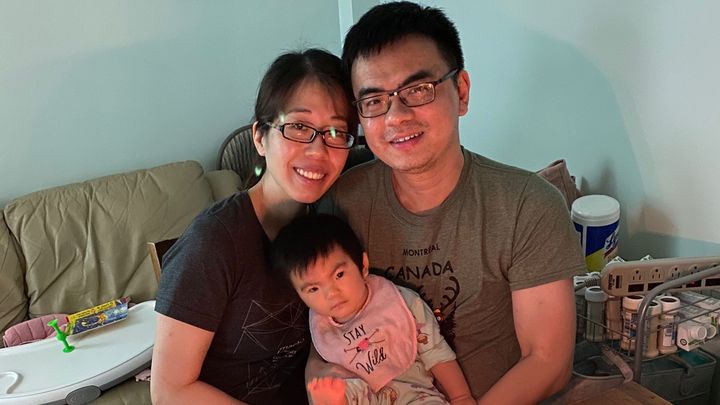
Help Ally battle Cri-du-chat syndrome
Donation protected
It is that time of the year again. A birthday is the time you simultaneously reflect on the past and plan for the future. On this day last year, we received the brain MRI results of my then 2 month-old baby daughter, Ally. The results suggested she could have pontocerebellar hypoplasia, a condition from which most patients die within an early stage of their lives. We were devastated; I cried so hard and my birthday wish last year was that "Ally is still with us for my birthday next year".
She is still with us, and, happy. However, later on Nov 23rd 2020, Ally was diagnosed with Cri-du-chat syndrome
- a genetic deletion disorder of chromosome 5. This is a severe genetic disorder without a cure. Individuals with this syndrome generally have severe mobility and intellectual disabilities. On diagnosis day, her geneticist told us "she might never walk, never talk, and certainly not live independently". From that moment on, our lives have changed, forever.
My wife and I started with everything we could think of, both on the early intervention side (600 + therapy sessions thus far and counting) and on the research side (with nothing tangible out there for cri du chat treatments). As a scientist, I started to read research papers on genetics and neuro-science and emailed dozens of scientists, with the hope of pushing research on this syndrome.
We heard back from some of the researchers, and we are currently working with some top scientists in the field, with the goal of better understanding this syndrome, so that there might be some possible treatment to help Ally and others with the syndrome improve their life quality. This is a long way and odds are not in our favor. But, as parents who love our child and hope that she can live her best life, we will try everything we can, turn every possible stone.
Investing in research requires a lot of resources, both money and time. With a rare disease like Cri-du-chat (which only happens 1 in every 50,000 births), drug companies usually do not have interest on proactive working on treatments and any efforts usually came from patient families. The annual cost of one research project on a rare disease such as Cri-du-chat syndrome is estimated to be around $120,000; and this is only for basic science research - if we are lucky to push the science to a clinical trial, it will be much more expensive.
I am asking for your help. My birthday wish for this year and all future years will be for my daughter and others with Cri-du-chat syndrome to live their best life, with any help that research and technology advancements can provide to them. These raised funds will fuel research on Cri-du-chat syndrome, with the hope that such research can guide us to a viable treatment one day, and thus help thousands of other Cri-du-chat patients and families all over the world.
From the bottom of my heart, thank you.


Organizer and beneficiary
Jin Cao
Organizer
Forest Hills, NY
Diana Cao-Shi
Beneficiary